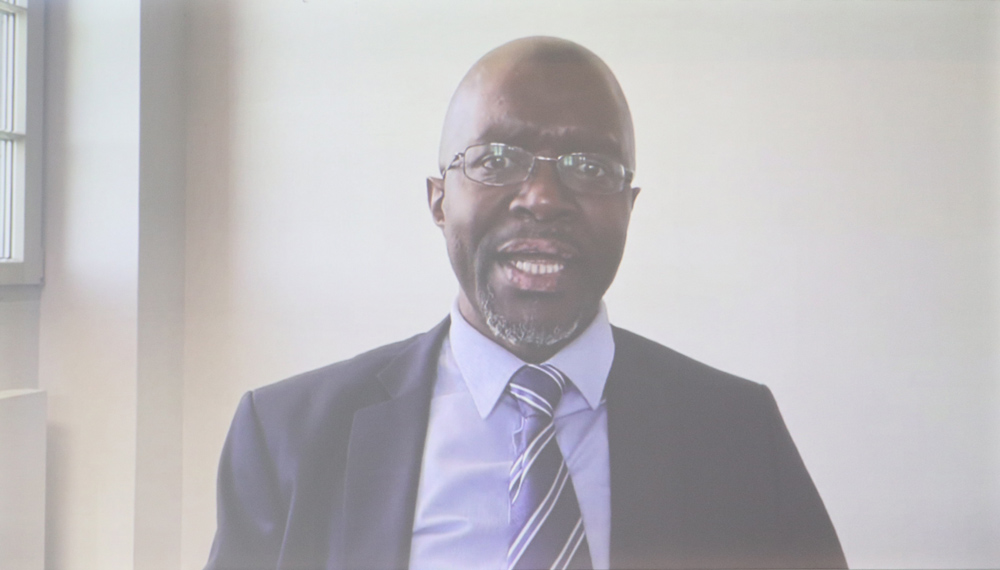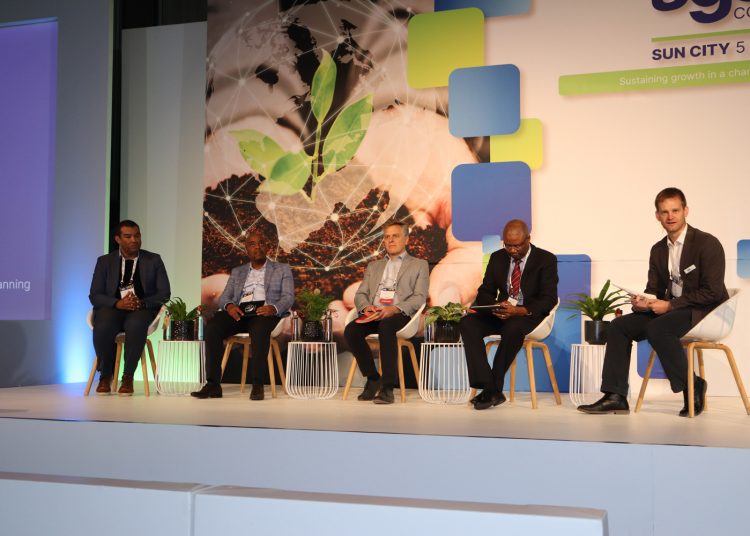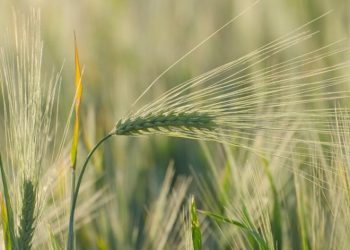
South Africa’s agricultural sector will increasingly face challenges in global trade as the trend towards sustainable and green agriculture is likely to gather pace, with protectionism becoming common place.
Prof Mzukisi Qobo, South Africa’s ambassador to the World Trade Organisation, addressed the Agbiz congress virtually from Geneva on 6 June. The congress was hosted at Sun City and sponsored by NWK, among others.
The theme of the congress was “Sustaining growth in a changing global landscape” and Qobo spoke about geopolitics, trade and foreign relations.
Post-Covid-19, but not post-crisis
South Africa has a trade dependent economy, with agriculture an export orientated sector. Agbiz’s data shows that agricultural exports have reached a new record of $13,2 billion in 2023 – an increase of 3% from the previous years.
“The agricultural sector relies heavily on an open global economy. The sector’s continued growth requires predictable global supply chains and deepening global interdependencies,” Qobo said.
He noted that, although the world may be post-pandemic it was not post-crisis. The world has faced multiple risks since the end of the pandemic, such as the escalation of war between Russia and the Ukraine in 2022. This has triggered new incidents of geopolitical fraction that have spilled over into trade.
Qobo also referred to the increased sanctions against Russia as well as rising tensions between China and the USA over trade and technology.
“The Transatlantic alliance has renewed focus on dealing with what the West calls China’s over-capacity problem. It would be interesting to see the nature of their relationship after the European Union’s parliamentary elections as well as that of the USA in November. How will the Transatlantic alliance deal with China’s so-called over capacity problem and what are these responses towards global supply chains likely to be?”
Make no enemies
Trade and foreign direct investment flows between blocks of countries that are not geopolitically aligned, have declined by roughly 12% to 20%, according to Qobo. A recent report by the International Monetary Fund (IMF) shows that new trade restrictions have increased sharply and in fact, more than tripled since 2019. This obviously decelerates and fragments supply chains.
“The use of international policies by advanced industrial economies is becoming frequent. Just last year, there were 2 500 incidents of industrial policy measures recorded, used by mainly developed economies as well as China. These measures distort investment flows and competition.”
In addition, financial sanctions are rising and being imposed on trade and investment relations, reinforcing proxies of what could become a new cold war.
“The changing geopolitical landscape poses a challenge for our foreign and domestic relations, as well the choice of global partners. Are you for, or against us? The IMF points out that today’s fragmentation is not significantly different from the initial years of the cold war.
“However, trade fragmentation is costlier today than it was during that period. At the start of the cold war, the ratio of goods traded in relation to the Gross Domestic Product (GDP) stood at 16%. Today, it is at 45%. Hence, the risk of global fractures could have far more reaching implications than during the cold war,” Qobo said.
Furthermore, this fragmentation could reduce portfolio and foreign direct investments, slow the pace of innovation and technology adoption and constrain the flow of commodities across fragmented blocks, resulting in large output losses and commodity price volatility.
However, an interesting development that could benefit South Africa during trying trading circumstances is the rise in so-called connector countries. They serve as conduits between geopolitically fragmented blocks such as China and the USA.
Examples of connector countries include Mexico and Vietnam. “Since these countries aren’t geopolitically aligned, they are reaping the dividends. The unspoken mantra seams to be: ‘Make no enemies and multiply friendships’.”
Are you green or are you out?
The European Union (EU) has a new green deal linked to climate law and aims to create an environment that attracts great investment within the EU. It provides state aid, grants and relaxed competition regulations to direct investment flows in green sectors while using green protectionist measures to discipline imports of products of high carbon intensity.
The EU has also recently adopted a corporate sustainability due diligence directive which makes it obligatory for EU companies and their subsidiaries to account for environmental and human rights risks in manufacturing countries across their supply chains.
The USA has an inflation reduction hat which provides a combination of subsidies, tax breaks as well as local content requirements to build new industrial capabilities in the green sectors.
“Many developing countries, including South Africa, cannot compete fiscally in an environment of industrial policies that are powered by subsidies.
“The trend towards sustainable and green agriculture is likely to gather pace, with new protectionism becoming common place. There will be a lot of talk in the coming years about sustainable and green agriculture. This will be accompanied by a new slew of protectionist matters and regulations targeted at certain inputs like agrichemicals.”
What does this mean for South Africa?
Qobo firstly pointed out that this forces industries to rethink supply chain management and long-term contracts. He emphasised the importance of collaboration between government and the business sector in responding to these changing global realities. “It is particularly essential for the agricultural sector of which the forces are tied to an open global economy, a conducive international trading environment as well as predictable supply chains.

“We’ve learned hard lessons in the wake of the Covid-19 pandemic and the immediate aftermath of the war between Russia and Ukraine and understand how the supply throttle on critical inputs could impose costs on supply chains.”
Qobo again cautioned against businesses and government working in a fragmented fashion: “If you want to find new sources of growth and want to restore hope, government and the business sector must work together.”
Thirdly, Qobo urged attendees to do everything in their power to defend and grow export markets. “We need to be more proactive than be at the mercy of geopolitics.”
He added that South Africa must be more deliberate about defining the future directions of our trade through the aggressive opening of non-traditional markets, especially in Asia and the Middle East. “This becomes more urgent given the new EU regulations which will hit our exports hard – from agriculture to manufacturing.”
Lastly, Qobo advised that the country builds on the existing agricultural and agri-processing masterplan. “The plan was concluded two years ago and a good framework for dealing with domestic structural challenges, including those related to transformation and inclusion, were constructed. We must act with urgency while building capabilities and coordinating efforts to open new markets for the sector’s long-term growth and prosperity.
“I know there is a fatigue when it comes to plans. Once you negotiate a plan it gathers dust, but we do have the basics in place to go back to. We need to reactivate and focus on its elements.”
Qobo concluded by saying that these geopolitical realities present an opportunity for South Africa to explore new directions. “We don’t know what further regulations will do to erode our market. Now is the right time to pivot into other markets.”









